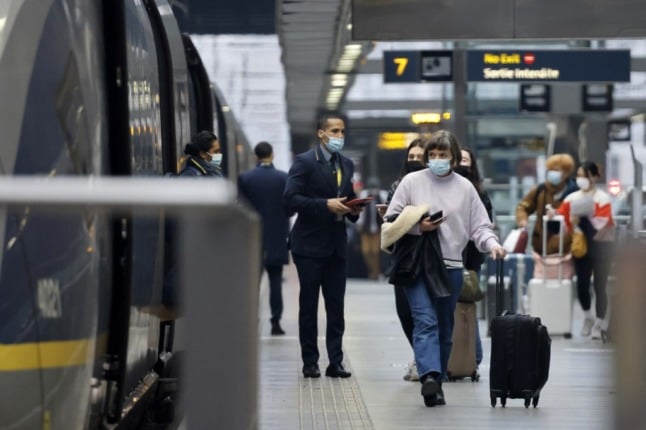Although travel between France and the UK is still only allowed for essential reasons, the list of accepted reasons was on Thursday evening expanded to include work trips.
A work trip that cannot be postponed will now be allowed, with an attestation from the employer stating that the trip is essential. The new rule covers travel both to and from France, and takes effect immediately.
Also added to the list of allowed reasons for travel is people passing through France on their way to their home in another EU country. Previously this had only been allowed for EU citizens, leaving Brits who live in another EU country unable to travel through France to get home.
Déplacements 🇫🇷↔️🇬🇧
A compter du 6 janvier 2022, la liste des motifs impérieux est élargie. Sont notamment facilités les déplacements professionnels dans les deux sens et les transits par la France pour rejoindre son domicile dans l'UE.https://t.co/OFRjPFOWKm
— ConsulFranceLondres (@ConsulFranceUK) January 6, 2022
The change was welcomed by Alexandre Holroyd, the MP responsible for French citizens living in northern Europe, including the UK, saying it was “a first step in easing travel restrictions, which I continue to advocate”.
⚠️ Évolution des motifs impérieux pour les trajets 🇫🇷-🇬🇧⚠️
Les déplacements professionnels non différables sont autorisés avec attestation de l’employeur.
Un premier pas dans l’assouplissement des restrictions pour les déplacements pour lequel je continue à m’engager. pic.twitter.com/P8JWsP6EEV
— Alexandre Holroyd (@alexIholroyd) January 6, 2022
Those travelling for work will still need a negative Covid test taken within 24 hours, plus all the existing paperwork. Hauliers have always been exempt from the ban. Elite athletes are also permitted to travel for tournaments with the agreement of the French sports ministry.
Although a welcome relaxation of the rules, this will come as a disappointment to the many people who still cannot travel, including those travelling for family visits or compassionate reasons, tourists and second-home owners.
The UK is now the subject of the strictest French rules after African countries including South Africa and Lesotho were removed from the ‘scarlet list’ which was created at the beginning of December over fears of the Omnicron variant.
Travel between France and the UK is only allowed for people who meet the criteria for motif impérieux (vital reasons) – these include citizens returning to their country of origin or country of residence and – now – essential work travel. Find the full list of reasons HERE.
Those who do meet the criteria for travel face a mountain of paperwork and with all travellers – including the fully vaccinated – have to show a negative Covid test taken within 24 hours to enter France.
READ ALSO The 9 essential pieces of paperwork for France-UK travel
The rules also require those leaving France for the UK to for the vital reasons criteria.
The rules were put in place in December when the UK began to see spiralling numbers of cases of the Omicron variant of Covid, but since then France has seen its own record case numbers and the Omicron variant has become dominant, leading many to complain that there is no longer any justification for such strict rules.
French government spokesman Gabriel Attal said on Wednesday that the government was ready to relax the restrictions “soon” but stopped short of promising complete end to the de facto travel ban , speaking only of widening the categories for essential travel.



 Please whitelist us to continue reading.
Please whitelist us to continue reading.
Member comments